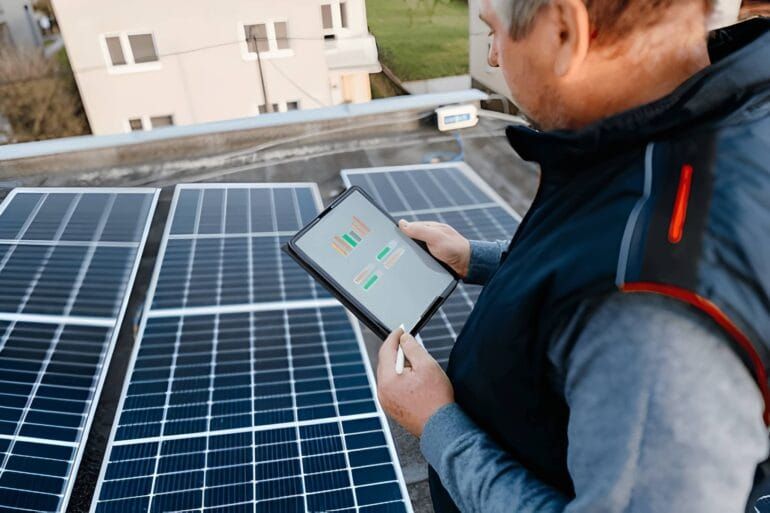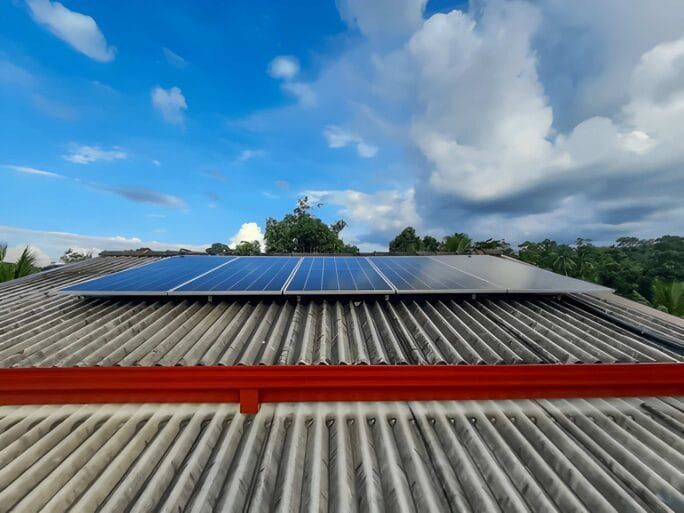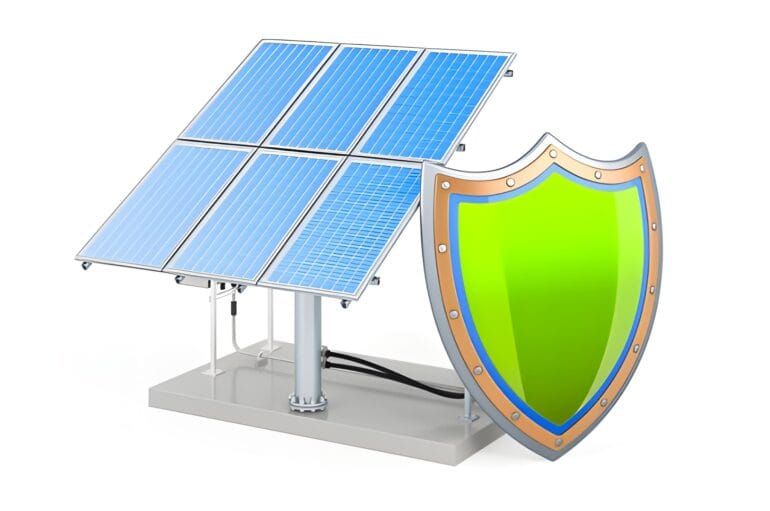In the era of renewable energy, solar power stands out as a beacon of sustainability and cost-effectiveness. If you’re considering harnessing the sun’s energy to power your home or business, understanding the financial aspects is crucial. Welcome to our solar panels cost calculator guide, where we’ll walk you through the process of estimating the expenses and potential savings associated with installing solar energy systems. Whether you’re a homeowner looking to reduce your electricity bills or a business owner interested in sustainable practices, our comprehensive tool will help you make informed decisions about investing in solar power.
Solar Panels and Their Benefits
Solar panels, also known as photovoltaic (PV) panels, are devices that harness sunlight to generate electricity. The primary benefit of solar panels lies in their ability to produce clean and renewable energy from an abundant natural resource: the sun. By converting sunlight into electricity, solar panels offer an environmentally friendly alternative to traditional fossil fuel-based energy sources, helping to reduce greenhouse gas emissions and mitigate climate change. Solar energy is free and inexhaustible, making it a sustainable solution for meeting electricity needs. Solar panels also provide financial benefits to homeowners and businesses by reducing electricity bills and offering long-term energy savings.
Furthermore, solar panels require minimal maintenance and have a long lifespan, typically lasting 25 years or more, making them a reliable investment in energy independence. Overall, the benefits of solar panels extend beyond environmental considerations to include economic advantages and energy security, making them a compelling choice for individuals and communities looking to embrace clean energy solutions.
Factors Affecting Solar Panel Costs
Several factors influence the cost of solar panels, including the cost per watt, system size, location, type of solar panels, and installation expenses. The cost per watt refers to the upfront cost of solar panels per unit of power capacity and varies depending on factors such as manufacturing costs, technology advancements, and market conditions. System size plays a significant role in determining solar panel costs, as larger systems require more panels and components, increasing the overall expense. Location and solar irradiance also impact costs, with regions that receive more sunlight generally experiencing lower installation costs and higher energy production.
The type of solar panels chosen, such as monocrystalline, polycrystalline, or thin-film, can affect both the upfront cost and energy efficiency of the system. Additionally, installation expenses, including labor costs, permits, and equipment, contribute to the overall cost of solar panel installations. By understanding these factors and conducting thorough research, individuals and businesses can make informed decisions about investing in solar energy systems that align with their budget and energy needs.
Using the Solar Panels Cost Calculator
Utilizing a Solar Panels Cost Calculator simplifies the process of estimating expenses and potential savings associated with installing solar energy systems.
Input Required Information
The Solar Panels Cost Calculator typically requires specific inputs such as your location, average monthly electricity consumption, current electricity rates, available roof space, and desired system size. This information helps the calculator determine the optimal solar energy system for your needs.
Calculation Process
Once you input the required information, the Solar Panels Cost Calculator utilizes advanced algorithms to analyze various factors, including solar irradiance, system size, and local incentives. These calculations help estimate the total cost of installing solar panels, including equipment costs, installation expenses, and potential savings on electricity bills over time.

Estimated Costs and Savings
After completing the calculation process, the Solar Panels Cost Calculator provides an estimate of the total upfront cost of installing solar panels, as well as potential savings over the system’s lifespan. This includes projected savings on electricity bills, return on investment (ROI), payback period, and any available incentives or rebates. By providing comprehensive cost and savings projections, the calculator empowers individuals and businesses to make informed decisions about investing in solar energy systems.
Using a Solar Panels Cost Calculator offers several benefits, including:
- Accuracy: By considering various factors and inputs, the calculator provides accurate estimates tailored to your specific circumstances.
- Transparency: The calculator breaks down the costs and savings associated with installing solar panels, helping you understand the financial implications of your investment.
- Decision Support: Armed with detailed cost and savings projections, you can make informed decisions about whether solar energy is a viable option for your home or business.
- Efficiency: Rather than manually calculating costs and savings, a Solar Panels Cost Calculator streamlines the process, saving you time and effort.
Interpreting the Results
Understanding the results generated by the Solar Panels Cost Calculator is essential for making informed decisions about investing in solar energy systems.
Breakdown of Expenses
The breakdown of expenses provided by the Solar Panels Cost Calculator offers insight into the various costs associated with installing solar panels. This includes the upfront cost of equipment, such as solar panels, inverters, and mounting hardware, as well as installation expenses, such as labor costs, permits, and equipment. By understanding the breakdown of expenses, individuals and businesses can better evaluate the financial implications of investing in solar energy and identify areas where cost savings may be possible.
Potential Return on Investment
The Solar Panels Cost Calculator also estimates the potential return on investment (ROI) associated with installing solar panels. This calculation considers factors such as projected savings on electricity bills, incentives or rebates, and the upfront cost of the solar energy system. A positive ROI indicates that the financial benefits of installing solar panels outweigh the initial investment, making it a financially viable option for homeowners and businesses. By understanding the potential ROI, individuals can assess the long-term financial impact of investing in solar energy and make decisions that align with their financial goals.
Payback Period
The payback period provided by the Solar Panels Cost Calculator indicates how long it will take to recoup the upfront cost of installing solar panels through savings on electricity bills. This calculation considers factors such as the cost of the solar energy system, projected savings on electricity bills, and any available incentives or rebates. A shorter payback period indicates that the financial benefits of installing solar panels will be realized more quickly, making it a more attractive investment option. By understanding the payback period, individuals and businesses can assess the financial feasibility of investing in solar energy and determine whether it aligns with their budget and financial goals.
 Tips for Optimizing Your Solar Investment
Tips for Optimizing Your Solar Investment
Maximizing the benefits of solar energy involves strategic planning and consideration of various factors. Here are some tips for optimizing your solar investment:
Financing Options
Explore different financing options to make solar energy more affordable and accessible. Options may include solar loans, leases, power purchase agreements (PPAs), or financing programs offered by solar installers or financial institutions. Compare interest rates, terms, and incentives to find the best financing solution for your budget and financial goals. Utilizing a Solar Panels Cost Calculator can help you assess the financial implications of different financing options and determine the most cost-effective approach for your solar investment.
Maximizing Energy Efficiency
Before investing in solar panels, maximize energy efficiency in your home or business to reduce energy consumption and optimize the performance of your solar energy system. Implement energy-efficient upgrades such as LED lighting, programmable thermostats, insulation, and energy-efficient appliances to lower electricity usage and enhance the overall effectiveness of your solar investment. By reducing energy demand, you can potentially decrease the size and cost of your solar energy system, leading to greater long-term savings.
Government Incentives and Rebates
Take advantage of government incentives and rebates to offset the cost of installing solar panels and accelerate the return on your investment. Many governments offer incentives such as tax credits, rebates, grants, or feed-in tariffs to encourage the adoption of solar energy. Research available incentives and eligibility criteria in your area to determine which programs you may qualify for. Additionally, consult with a Solar Panels Cost Calculator to estimate the potential savings from government incentives and rebates and incorporate them into your financial planning.
Conclusion
Utilizing a Solar Panels Cost Calculator is a valuable tool for individuals and businesses interested in investing in solar energy. By accurately estimating expenses and potential savings, the calculator empowers users to make informed decisions about solar panel installations. Understanding the breakdown of expenses, potential return on investment, and payback period enables individuals to assess the financial feasibility of solar energy and determine the best course of action for their needs. Additionally, exploring tips for optimizing solar investments, such as exploring financing options, maximizing energy efficiency, and leveraging government incentives, can further enhance the financial benefits of solar energy. With the help of a Solar Panels Cost Calculator and thoughtful planning, individuals and businesses can embark on a journey towards a cleaner, more sustainable energy future.
FAQs
Is solar energy cost-effective?
Yes, solar energy can be cost-effective, especially when considering long-term savings on electricity bills and available incentives.
How do I finance a solar panel installation?
Financing options for solar panel installations include solar loans, leases, power purchase agreements (PPAs), and government incentives.
What incentives are available for installing solar panels?
Government incentives for solar panels may include tax credits, rebates, grants, or feed-in tariffs, depending on your location and eligibility.

 Tips for Optimizing Your Solar Investment
Tips for Optimizing Your Solar Investment





